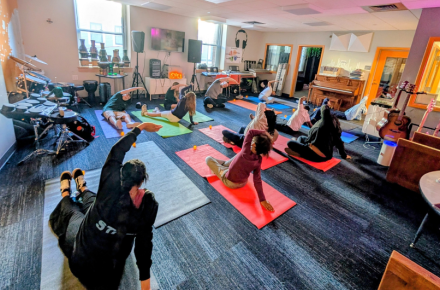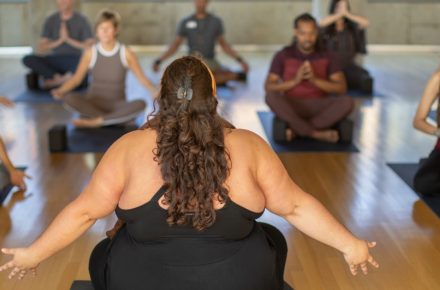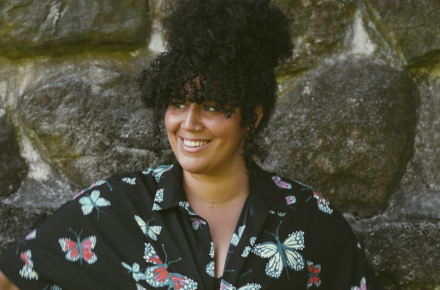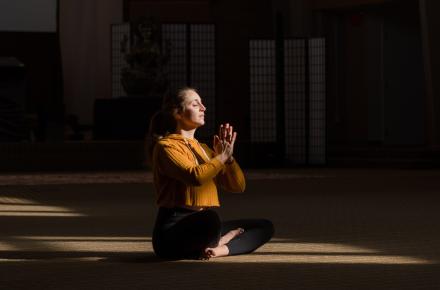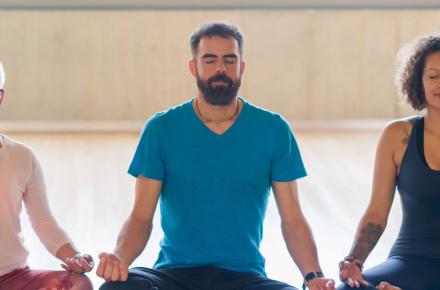11 Remedies to Ease an Anxious Mind


When we experience anxiety, we’re itchy, antsy, pulling our hair out—and, even if we have a regular practice, we’re likely too jumpy to even meditate. Try drawing on these 11 remedies to quiet an anxious mind.
1. Slow down.
When we are anxious, everything speeds up: our thoughts race, our heart pounds, our breathing accelerates. This makes it difficult to think clearly and make healthy decisions. At the first sign of things speeding up, move a little slower and see what else you can do to intentionally slow things down.
2. Come to your senses.
Anxiety lives in our minds and often manifests in the body. When we’re anxious, we’re not connected to where we are. Take a few moments to connect with your five senses. It will help bring you back into the moment.
3. Be mindful of a simple task.
Life is full of simple tasks: walking, eating, answering emails, gardening, drinking water, cooking. When we’re anxious, we feel out of control. Being mindful of a simple task helps remind us that we’re in control of our choices. Choose a task and imagine it’s your first time doing it. Dip into the richness of your life.
4. Do a reality check.
Anxiety often stems from fear about events that haven’t taken place. Our minds are very creative and powerful and often tell stories that aren’t true. When you have a catastrophic thought, ask yourself, “Is this thought absolutely true?” Chances are your worst fears are just that—fears. They’re not facts, and they do not reflect the reality of what is happening.
5. Release the critic.
Anxiety is painful, and it’s further amplified when accompanied by self-critical thoughts. Do self-judgments make you more or less anxious? The answer is, almost always, more. When you notice the self-critic, see if you can interrupt it by dropping into your heart and saying, “May I learn to be kinder to myself.”
6. Channel your anxious energy.
Not all anxiety is bad. Like most mental events, anxiety lies on a spectrum. If your anxiety isn’t severe, you can actually channel that energy into something productive. If you’re nervously waiting to hear some news, get active—go for a brisk walk, clean, organize, or garden instead.
7. Lie down and look up.
This is an age-old trick. A natural experience of mindful awareness sets in when we simply lie down, look up at the sky, and watch the clouds. Experience the wonder of how all things naturally come and go.
8. Listen.
As an experiment, pick a day and set an intention to listen. Listen to the sounds of leaves in the wind, of kids playing, or someone speaking to you. When we pause and listen, we get back in touch with the simplicity of life, and anxious thoughts begin to simmer down.
9. Practice 5×5.
In moments of moderate to intense anxiety, the 5×5 practice can come in handy. Go through each of your senses and name five things that you notice about them. Try naming five things you’re seeing, smelling, tasting, feeling, and hearing. This can help interrupt negative modes of thinking that may be fueling anxiety.
10. Know your triggers.
Explore the things that make you anxious. Is it being late, public speaking, social situations? If you know your triggers, you can prepare soothing practices for a situation in advance. When the mind feels prepared, it’s more at ease.
11. Nurture patience.
Impatience is to anxiety as patience is to calm and ease. If you want to create mastery around patience, you need to be on the lookout for impatience and get curious about it. How does it manifest in the body? Can you let it be? Patience isn’t only a virtue. It’s a pathway to emotional freedom.
This article originally appeared on Elisha’s website.







